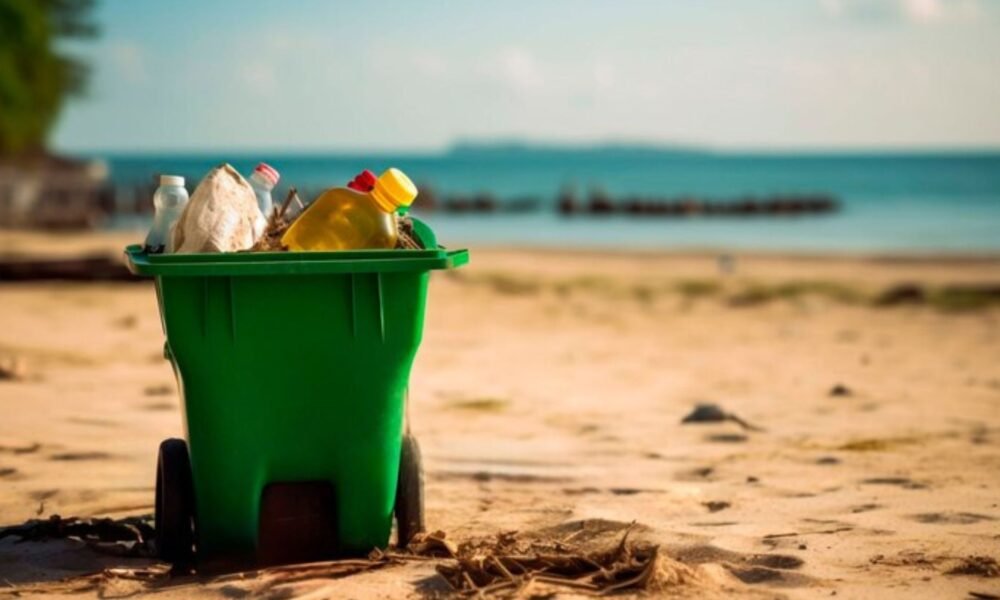All the information you want regarding a system for handling waste, including an overview, techniques for disposing of garbage, instruments for cutting waste, guidance on conducting efficient waste audits, as well as extra resources to assist your company in adhering to ecological regulations.
A Waste Disposal System: What Is It?
A waste disposal system is a simplified procedure used by businesses to avoid, minimize, and repurpose garbage. Recycling, composting, incineration, landfills, bioremediation, waste-to-energy, & waste reduction are examples of potential waste disposal techniques. There are quite a lot of firms at skip hire Urmston that offer the service of deposing this waste, and you should be using it.
Methods For Disposing Of Waste:
There are several approaches and techniques for managing garbage. An organisation can customise a waste disposal system by combining or rearranging these tactics. The goal of contemporary waste disposal techniques is longevity. Garbage reduction, reuse, and recycling are additional options for getting rid of garbage.
- Recycling, often referred to as physical reprocessing, is the best method for getting rid of inorganic trash like metal, glass, and plastic. Composting represents a superior way to dispose of garbage since it turns organic matter into nutrient-rich fertiliser, even if organic waste like food and paper may also be recycled.
- On the other side, waste-to-energy, or WtE, is the process of converting non-recyclable garbage utilising renewable energy sources like anaerobic digestion & plasma gasification into heat, electricity, or fuel.
- Anaerobic digestion is a method by which human excreta and animal dung are biologically reprocessed to produce methane-rich biogas. Hazardous waste can be converted into syngas by a process called plasma gasification, which involves a vessel filled with plasma and running at high temperatures & little oxygen. Bioremediation, which uses microorganisms to remediate pollutants, poisons, and pollutants, is an additional method for getting rid of hazardous material.
Correctly Classifying And Segregating Waste:
Making sure that you are correctly classifying and segregating your waste is a crucial first step in enhancing your healthcare waste disposal and conformity. Improper garbage disposal can lead to some issues, cross-contamination being only one of them. Reducing the quantity of garbage you produce may be achieved by appropriately collecting and discarding it.
Training And Educating Your Employees:
Each staff member has to get training and instruction on all types of medical waste and how to handle, keep, and dispose of it securely. To make sure that employees understand the distinctions among hazardous trash, regulated garbage, and other categories, regular training is essential. Both new hires and current staff members ought to receive ongoing education on OSHA safety regulations and medical waste.
Put Eco-Friendly Trash Cans In Place:
Not only are recyclable and reusable trash cans more economical and environmentally friendly, but they also conserve your institution’s money.
Provide Safety Data Sheets:
A vital component of your facility’s medical waste disposal programme is safety information sheets. They include important details on the chemicals utilised in your company and the proper handling, storage, and disposal procedures. All employees who handle or use chemicals ought to have easy access to these information sheets.
Establish A Plan For Emergency Preparedness:
An essential component of your waste disposal and compliance programme is ensuring the safety of your employees, patients, and guests. Make sure your company has a strategy in place for emergency preparedness and that all employees are instructed on what to do in the case of a fire, an unintentional waste leak, or any other catastrophe.
To implement emergency strategies, key staff members ought to be given leadership positions and designated roles with defined duties, such as alerting teammates to crises. Drills such as evacuation and fire procedures have to be organised and carried out regularly.
Seek Out Recyclable Opportunities:
Throughout self-audits, identify objects which may be recycled or used again. Plastics, glass, paper, computers, electronics, and other items found in your establishment may fall under this category. You may save expenses and garbage which doesn’t need special waste management by recycling or reusing.
Final Words – Manage Waste Disposal:
Utilise these suggestions to reduce waste and enhance your facility’s medical waste disposal programme. Reducing the quantity of garbage produced helps lessen the quantity of waste which ends up in landfills, which eventually helps the environment, our communities, individuals, and animals. Keep visiting techuper for more informative articles.




